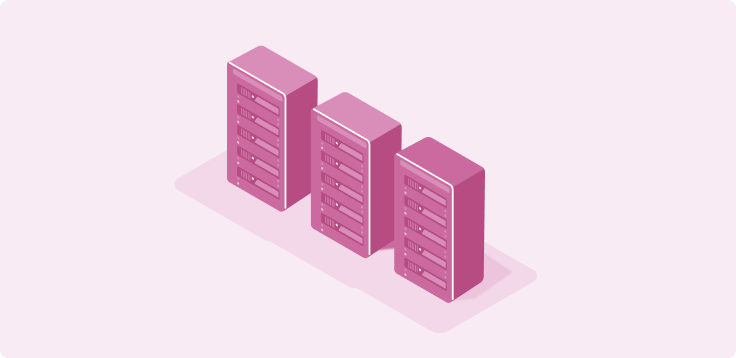Sep 27, 2024
Combating Online Fraud with Proxies: An Introduction

What is Online Fraud?
Online fraud refers to any illegal activity conducted via the internet, often targeting individuals or businesses. It includes a broad spectrum of cyber crimes such as credit card fraud, ad click fraud, phishing, and even data breaches. These activities not only result in financial losses but also damage trust and reputation. Companies need robust measures to protect themselves, and that's where proxies come into play.
What Are Proxies?
Before we jump into how proxies help fight fraud, let's cover the basics of what a proxy is. A proxy acts as an intermediary between your device and the internet. Instead of connecting directly to a website or online service, your request goes through the proxy server, which then relays the data to and from the desired site.
Proxies come in different forms, such as **residential proxies** (using IP addresses from residential locations) and **datacenter proxies** (using IPs from cloud services). Each type offers its own advantages depending on your needs, whether it’s anonymity, performance, or bypassing geographic restrictions.
How Proxies Help in Combating Online Fraud
Now that we understand what proxies are, let’s explore how they can be a game-changer in the fight against online fraud.
1. Ad Fraud Prevention
Ad fraud is a major problem, especially for businesses that rely on digital advertising. Fraudsters often create fake clicks or impressions to drain marketing budgets. With proxies, businesses can monitor their ad performance from different geographical locations and detect suspicious activity.
For instance, if an ad is supposed to run in one country but is receiving a large amount of traffic from another, this could be a red flag for fraud. Proxies allow businesses to verify that their ads are being shown to legitimate users and are not being exploited by fraudsters.
2. Preventing Account Takeovers (ATO)
Account takeover fraud occurs when a cybercriminal gains access to a legitimate user’s account, often through phishing or stolen credentials. Proxies can help detect and prevent these takeovers by flagging suspicious login attempts from unusual IP addresses.
With the use of rotating proxies, businesses can simulate legitimate user activity to catch fraudsters trying to gain unauthorized access. If multiple failed login attempts come from different locations in a short time frame, proxies can help identify this as fraudulent behavior and lock down the account.
3. Payment Fraud Detection
Payment fraud, such as credit card fraud and unauthorized transactions, is another growing concern for online businesses. Proxies allow for real-time monitoring of transactions and can help detect fraudulent behavior before it escalates.
By using proxies to monitor transactions from different regions, companies can identify inconsistencies in the purchasing patterns, flagging them for further investigation. For instance, if a credit card issued in one country is suddenly used in a completely different location for a high-value purchase, proxies can detect this anomaly and trigger an alert.
4. Scraping to Detect Fraudulent Behavior
Proxies are essential in web scraping, particularly when it comes to anti-fraud efforts. Companies use web scraping to gather data on competitors, track pricing changes, or monitor reviews and feedback. However, it's also a powerful tool in identifying fake accounts, fraudulent listings, or counterfeit products.
By using proxies to scrape different marketplaces, review platforms, and social media sites, businesses can gather vast amounts of data to cross-reference and detect fraudulent behavior. Proxies make this possible by masking the scraping activity, avoiding IP bans, and allowing access to geo-restricted content.
5. Protecting Against Bot Attacks
Bot attacks are one of the most prevalent forms of online fraud, ranging from credential stuffing (using stolen credentials to access accounts) to fake sign-ups and content scraping. These attacks can overwhelm a business’s resources and lead to significant losses.
Proxies offer an additional layer of security by helping detect bot traffic. They can route traffic through various proxy servers, making it easier to identify patterns that signify fraudulent activity. For instance, if a large number of requests come from a single IP address, this is likely a bot trying to overload a system, and proxies can help mitigate this threat by flagging and blocking the IP.
The Advantages of Using Proxies for Anti-Fraud
By now, you can see that proxies offer several key advantages in combating online fraud:
- Increased Anonymity: Proxies hide your real IP address, making it more difficult for cybercriminals to target specific individuals or businesses.
- Geographic Flexibility: You can monitor activities from various regions, allowing you to detect fraud attempts that might only occur in certain areas.
- Improved Security: With rotating proxies, businesses can continuously change their IP addresses, making it much harder for fraudsters to track or exploit their systems.
- Enhanced Data Collection: Proxies enable businesses to gather important data to cross-reference and validate suspicious activity, whether it’s for ad monitoring or scraping for counterfeit products.
Proxies have become a critical tool in the battle against online fraud. From detecting ad fraud and preventing account takeovers to safeguarding payment transactions and identifying bot attacks, proxies offer businesses an essential layer of protection.
As online fraud continues to evolve, so too must our defenses. Implementing proxies into your anti-fraud strategy can provide you with the anonymity, flexibility, and security you need to stay one step ahead of fraudsters. By using proxies, businesses can not only protect themselves from current threats but also ensure they’re prepared for whatever new tactics cybercriminals might employ next.
You might like these, too
Price Monitoring · 5 minutes read
Data Collection · 4 minutes read
Data Collection · 5 minutes read
